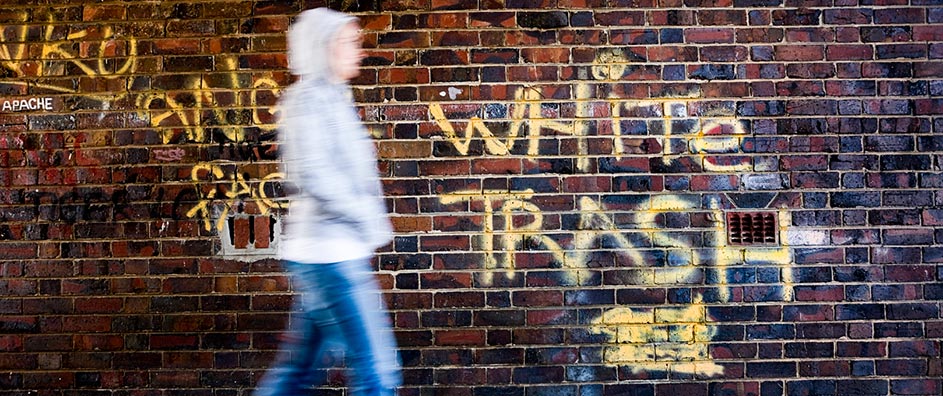In contemporary society, where diverse belief systems intersect, the Bahá’í teachings serve as a beacon for those yearning for spiritual enlightenment beyond the confines of traditional doctrines. Central to these teachings is the concept of abandoning the prejudices of tradition. This imperative invites individuals to transcend static cultural beliefs, thereby promising a transformative shift in perspective and piquing intellectual curiosity. Such a paradigm shift is essential in recognizing the essence of truth that underlies all religious teachings.
The idea of abandoning traditions that do not align with the spirit of truth is particularly significant within the context of Bahá’í thought. This is not merely a rejection of customs or rituals; rather, it entails a profound reevaluation of inherited wisdom and beliefs. The Bahá’í Faith asserts that spiritual truth is not relegated to a singular interpretation but is dynamic and subject to the evolving understanding of humanity. This principle encourages individuals to critically analyze the doctrines that have defined their existence and to seek a more profound comprehension of divinity that resonates with contemporary experiences.
The juxtaposition of tradition and progress forms a critical dichotomy within this discourse. Traditional beliefs, while often rooted in historical significance, may inadvertently inhibit personal growth and societal advancement. To abandon these prejudices is to liberate oneself from the shackles of anachronistic postulations. Such liberation allows for the exploration of a more expansive and inclusive spiritual landscape, one that acknowledges the validity of multiple paths to truth.
Furthermore, this shifting perspective necessitates an active engagement with knowledge. The Bahá’í teachings advocate for the pursuit of education as a means of dismantling misconceptions. Ignorance breeds prejudice, and in ignorance, dogma flourishes. Conversely, enlightenment nurtures curiosity—a desire to understand and explore. This thirst for knowledge acts as a catalyst for personal and communal progress. By fostering an environment where questioning is encouraged, individuals can confront biases and learn to appreciate the rich tapestry of human experience.
In navigating the complexities of tradition, one must also consider the impact of societal norms and collective identities. Often, individuals are unwittingly bound to ideologies that dictate their actions and beliefs, inhibiting their ability to think independently. Bahá’í teachings urge followers to recognize these constraints and to penetrate the superficial layers of societal expectations. The process of unpacking these layers is inherently a journey of self-discovery, leading to a more authentic expression of one’s beliefs and values.
Moreover, engaging in a dialogue about the prejudices of tradition can stimulate a communal awakening. When individuals collectively question the validity of societal constructs, it can lead to a broader transformation. This communal discourse fosters empathy and understanding, allowing for a more harmonious coexistence among diverse belief systems. As individuals share their unique insights and experiences, a collective wisdom emerges that transcends individual prejudices.
The Bahá’í concept of unity is irrevocably linked to this abandonment of prejudices. Unity is not merely a noble aspiration; it is a fundamental tenet that necessitates the relinquishment of divisive traditions. When individuals commit to this principle, they cultivate a sense of belonging that is inclusive of all humanity. This radical inclusivity serves as a foundation for peace and social justice, facilitating cooperative initiatives that transcend parochial interests and promote the common good.
Integral to this discussion is the role of personal reflection in abandoning the prejudices of tradition. Self-reflection enables individuals to identify and challenge their own biases, leading to a deeper understanding of self and others. This introspective process is vital; it allows for the confrontation of biases that are often ingrained and unconscious. By examining one’s beliefs through such a lens, the inherent beauty of diversity becomes more apparent and appreciated.
The notion of abandonment also extends to the interplay between science and religion, an area that often experiences contention. The Bahá’í teachings advocate for a harmonized relationship between these spheres, positing that the quest for truth is a holistic endeavor. The prejudices of tradition often dictate a rigid separation between faith and reason, but through the abandonment of such prejudices, a synthesis of scientific inquiry and spiritual understanding emerges. This synthesis reinforces the idea that knowledge is multifaceted and can be enriched through the collaboration of various domains of human endeavor.
Ultimately, the promise embedded within the concept of abandoning the prejudices of tradition is one of profound liberation and enlightenment. Such a shift in perspective invites individuals to embark on a courageous journey, one that embraces curiosity over dogma and exploration over stagnation. In fostering a culture that prioritizes inquiry and understanding, a more equitable and just society can emerge, thus embodying the true spirit of the Bahá’í teachings. This paradigm shift not only transforms individual lives but ripples outwards, influencing communities and, ultimately, the world at large.
In conclusion, the Bahá’í teachings on abandoning the prejudices of tradition call upon humanity to seek authenticity in beliefs and to pursue truth with unwavering fervor. This transformative journey requires courage, reflection, and an openness to diverse perspectives. By aspiring to abandon outmoded prejudices, individuals can cultivate a more profound understanding of their spiritual paths, leading to the realization of unity and the flourishing of communal harmony.
